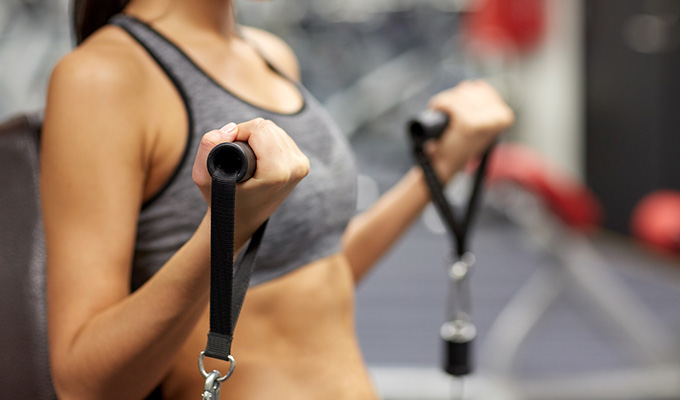More and more Americans are invested in physical fitness. While that’s a great thing for our health, exercise isn’t without its risks. In fact, three to five million Americans are injured during exercise or sport activities every year.
Of course, this doesn’t mean we should all become couch potatoes. It just underscores the importance of keeping safety in mind whenever you work out. In that spirit, here are six simple ways to ensure you’re staying safe while getting fit.
1. Practice proper form.
This is one of the most basic—and most important—strategies for ensuring your workout is safe. Prior to performing any exercise, make sure you know how to practice it properly. If you’re not completely confident about how to perform a certain move, consult a certified personal trainer. Even once you’re regularly practicing an exercise, remain vigilant—stay aware of your body during every rep to ensure you’re not slipping out of alignment.
2. Listen to your body.
Your body is one of the best tools you have for modifying your workouts effectively, because it’s constantly providing you with feedback as you exercise. Pay attention to these signals—if your body is telling you that it’s in pain, seriously fatigued, or feeling sick, that’s a good sign you should back off from whatever you’re doing. Also be aware of your body’s hydration needs. If you notice unusual aches and pains that persist well after your workout, it may be time to consult a medical professional.
3. Dress for the weather and light.
If you work out outside, then it’s important to be adequately prepared for whatever Mother Nature might throw at you. If it’s cold outside, wear layers (including a hat and gloves); if it’s hot outside, wear lightweight fabrics, be extra vigilant about hydration, and be on the lookout for signs of overheating. If you’re outside after the sun goes down, make sure you’re wearing reflective gear so you’re visible to motorists.
4. Utilize safety tools when weightlifting.
Lifting weights is an incredibly effective way to build strength and muscle, but it’s also easy to injure yourself if you don’t lift properly. In addition to practicing proper form during all weightlifting moves (see above), utilizing a variety of tools can help make your weightlifting sessions safer. These include lifting belts (which help stabilize and support the core) and lifting straps (which help ensure you don’t lose your grip on heavy weights). And of course, don’t forget to enlist a spotter whenever you’re lifting.
5. Inspect resistance bands before use.
If you utilize resistance bands in your workouts, be aware that bands can break and snap, which can lead to injury. This shouldn’t turn you off of using resistance bands—it just means you should inspect bands properly before use. Before every resistance band workout, visually inspect the band for cracks, discoloration, or other signs of weakness (especially near the handle). If you notice anything suspicious, play it safe and avoid using that band.
6. Don’t text and work out.
Texting and driving is the subject of many a PSA—and it is high time we all became aware of the dangers of texting and working out, too. Whether you’re on the treadmill, the trail, or the road, texting while moving sets you up for potential injury. That’s because texting distracts you from maintaining proper form and focusing on your surroundings, which makes you more likely to lose your footing, run into someone (or something), or unwittingly step into traffic. Play it safe and save the texting for when you’re recovering on the couch.
In addition to these tips, make sure you’re giving your body adequate time to recover in between workouts. Overuse injuries can result from training too intensely or too frequently, so be sure to shake up your workout routine and give your body plenty of rest days in order to stay injury-free over the long haul.
